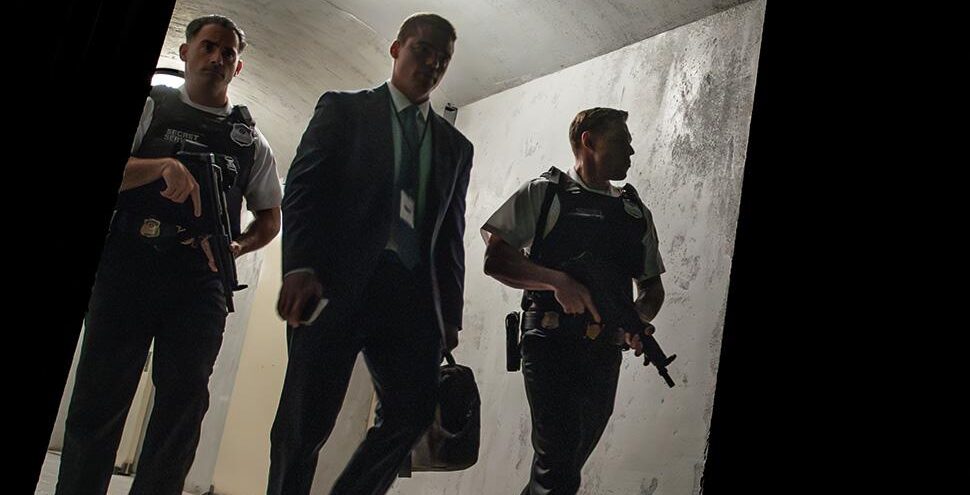On March 7, 2010, James Cameron, Lee Daniels, Jason Reitman, and Quentin Tarantino shared a seminal honor: being conquered by Kathryn Bigelow, who became the first woman to receive the Academy Award for Best Director (she won for “The Hurt Locker”).
“It was a cinematic and political milestone then; it still is,” Manohla Dargis wrote in 2017. “And while it may seem paradoxical that Ms. Bigelow was honored for a war movie in which women are largely physically absent, masculinity—with its discontents, rituals, enigmas and staggering, annihilating capacity for violence—has long been her great subject.”
That may be a quasi-reductive reading of Bigelow, whose films are populated with plenty of discontented—and daring—women (particularly 1995’s “Strange Days,” in which Angela Bassett’s character uses a taser to defend herself from a murderous, racist cop).
Nevertheless, Dargis is correct insofar that annihilating violence rages through Bigelow’s oeuvre, making “A House of Dynamite”—a cinematic countdown to a nuclear strike on Chicago—seem like the fulfillment of a promise as inescapable as a burning fuse.
“This is insanity,” moans the panicked U.S. president (Idris Elba). “No, sir,” replies General Anthony Brady (Tracy Letts). “This is reality.” It is a reality that Bigelow evokes in eerily precise detail, chronicling everything from the insecurities to the eating habits of the Americans bracing for a subzero war to broil.
Like “Zero Dark Thirty” (2012), Bigelow’s triumphantly icy procedural about the CIA’s quest to slay Osama bin Laden, “A House of Dynamite” is split into chapters (titles include “Inclination Is Flattering,” “Hitting a Bullet With a Bullet,” and “A House Filled With Dynamite”).
These striated story tiers can make it seem as if Bigelow is crafting a thesis on humanity’s idiocy in the face of armageddon (she’s a graduate of the San Francisco Art Institute). Yet there’s nothing academic or abstract about “A House of Dynamite,” which intensifies its pre-apocalyptic death march when Captain Olivia Walker (Rebecca Ferguson) shows up for her shift at the White House in high dudgeon.
“Anything else holds up the line,” Walker says, scolding a CNN lackey for ordering an omelet instead of an egg sandwich from a breakfast vendor. In the context of a ruthless thriller, shockingly trivial interactions are Bigelow’s best weapon against the audience, sharpening the rising dread as if it were a scalpel.

A steely Bigelow lookalike (minus four inches), Walker is the locus of “Inclination Is Flattering,” but ultimately passes the narrative baton to Jake Baerington (Gabriel Basso), the idealistic deputy national security advisor at the center of “Hitting a Bullet With a Bullet.”
“I believed him,” Baerington firmly tells the president after a Russian foreign minister insists that his government didn’t fire the missile. For all his well-meaning defiance, however, Baerington can’t be sure, since the U.S. military has failed to pinpoint the source of the strike.
That nagging ambiguity is the savviest play in the film’s script, which was written by the controversial former NBC president Noah Oppenheim (in his 2019 book “Catch and Kill,” Ronan Farrow accused Oppenheim of hindering his investigation into Harvey Weinstein, an allegation Oppenheim denied).
Who, “A House of Dynamite” ponders, has the most to gain from an American nuclear Holocaust? North Korea, perhaps, but what if the DPRK is merely a scapegoat for Russia? Or a missile malfunction in China is to blame?
While all of those possibilities are considered, Bigelow and Oppenheim allow the mystery to linger like a noxious odor, forcing Elba’s flailing, posturing president (referred to only as POTUS) to contemplate an unholy response: a preemptive attack on all suspect nations.
“They’re all narcissists,” declares SAIC Ken Cho (Brian Tee), referring to the commander in chief and his immediate predecessors (in the world of the film—and, most likely, real life). “At least this one reads the newspaper.”
That may be true, but I was never convinced that POTUS would muster a measured response, thanks to the haunting insinuations of Elba’s vanity-free performance (which evokes the insidious charm of Bill Clinton and the chilling bafflement of George W. Bush).
Twice in “A House of Dynamite,” POTUS announces, “My orders are….”; both times, we are left in agonizing, addictive suspense, a directorial feint intimating that Bigelow wants us wrestling not only with the choices her characters might make, but the choices we would make in their place.
I suspect some moviegoers will be irritated by Bigelow’s caginess about the cataclysmic places those choices might lead to, but there’s something refreshing about her restraint (like Christopher Nolan, she respects the power of freeing an audience to imagine the worst).
At a trim 112 minutes, “A House of Dynamite” is a swift downward sprint toward destruction, but you never feel oppressed by its pessimism. Like Bigelow’s best films, it is a giddily sadistic roller-coaster ride, albeit one you’d fretfully bypass at an amusement park.
“We did everything fucking right!” a soldier exclaims in disbelief as he stares into the depths of his country’s moral and political impotence. I disagree; no normal human being can do everything right. That said, Kathryn Bigelow has never been normal.



